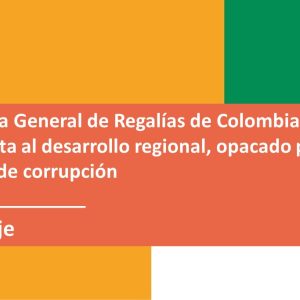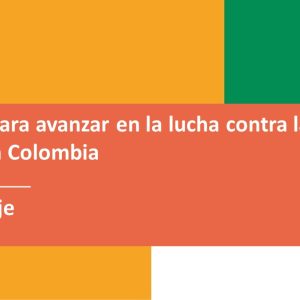On February 27, during the Third Meeting of the Civil Society Roundtable for Transparency in the Extractive Industries, Andrés Hernández, director of the Citizenship Area of Transparencia por Colombia, presented the lessons learned from the program. “Transparency and Accountability in the Extractive Industries – TRACE”.of Publish What You Pay Norway.
Andrés Hernández highlighted the importance for Colombia of being part of TRACE “It is an opportunity to learn from the experiences of other countries working on issues such as transparency in contracts, payment of taxes, fiscal frameworks, among others”. He also added, “By learning from the experiences of others, we will be able to better understand and more clearly communicate information to Colombian civil society” Watch video.
Some of the lessons learned from the meeting on international standards in the extractive sector were the following:
Extractive Industries Transparency Initiative (EITI): Reports are prepared at the country level, membership is voluntary and data disclosure is required. EITI is also a tool that enables dialogue between government, civil society and business in the same scenario. However, the initiative does not evidence the multinational reach of the companies and could complement its reports with Publish What You PAY Norway’s Country-by-Country or Project-by-Project reports.
Extended Country-by-Country Reports – Publish What You Pay Norway: These reports include multinationals’ information such as internal sales prices of products and services between companies, key data on companies’ audited financial statements, investments, production, sales revenues, costs, among others.
Contract Transparency: Transparency is increasingly used as an argument for making contracts and thus attracting investors. Currently, there are approximately 16 types of contracts worldwide, most of which are effective. However, one of the main problems lies with governments, because they do not exercise effective control over them. In addition, some contracts do not contain data on costs, payments, environmental or social information and contract value.
The program “Transparency and Accountability in the Extractive Industries” is led by Publish What You Pay Norway and seeks to strengthen the capacity of civil society organizations, journalists and trade unions in resource-rich countries.


